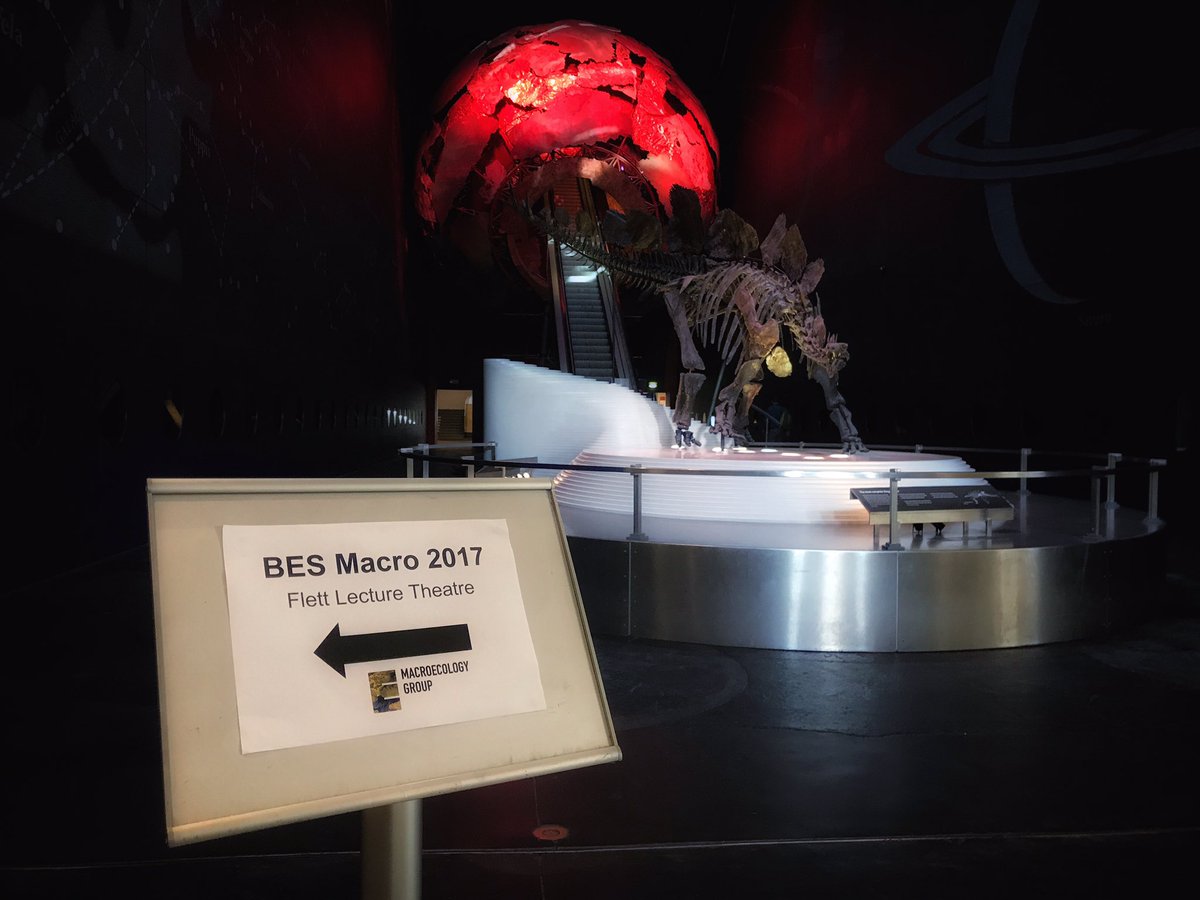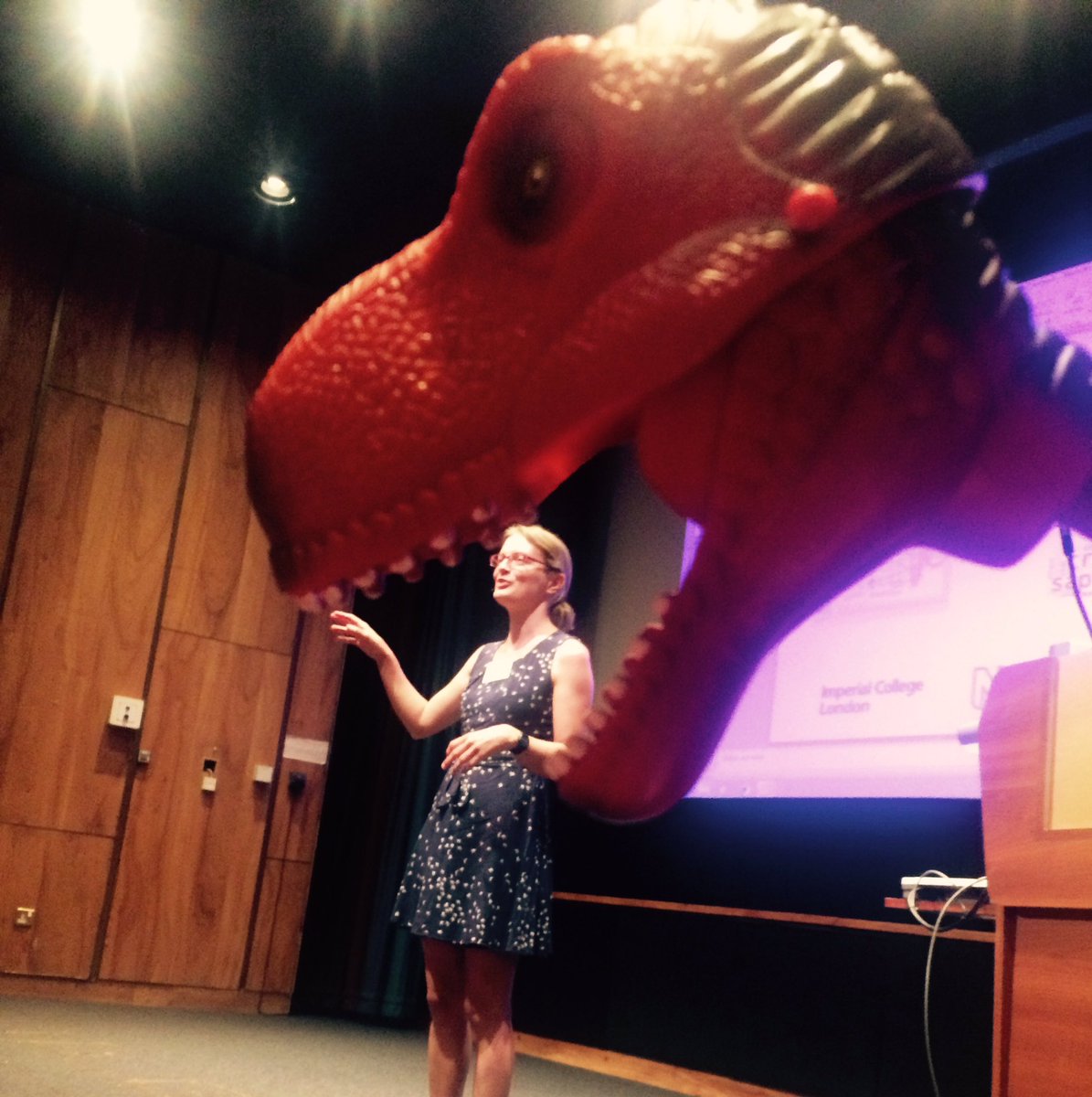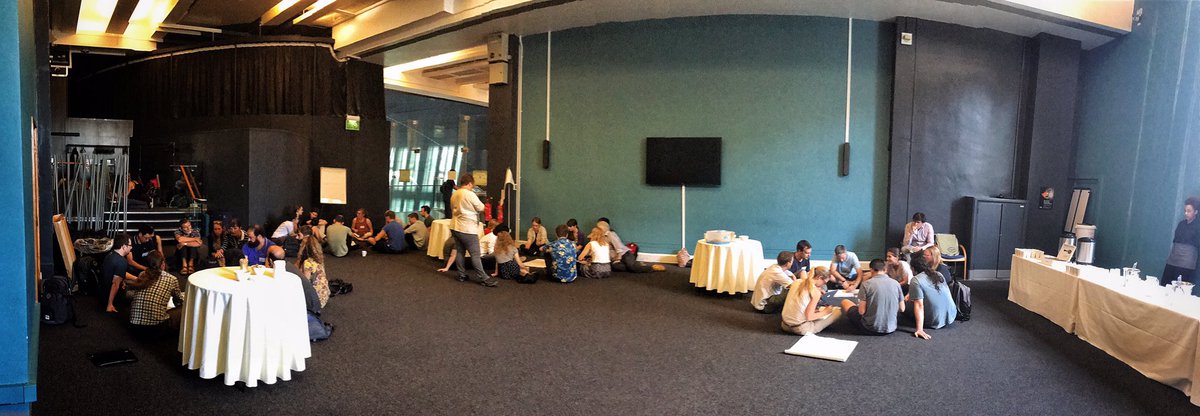Organising conferences the easy way... or not
 Over the last couple of years I’ve organised a lot of meetings and conferences. In July 2017 I organised my biggest one yet, BES Macro 2017 (see Storify here) with over 150 attendees over three days at the Natural History Museum, London. It was great fun, but a lot of work! At the end of the meeting, it was suggested that we create some kind of hand over document for helping people to organise future BES Macro meetings. I thought some of this might make a good blog post, so below are some tips, advice and ideas. Of course lots of this can be done in multiple ways, and different people have different organisational styles. But hopefully some of it is useful.
Over the last couple of years I’ve organised a lot of meetings and conferences. In July 2017 I organised my biggest one yet, BES Macro 2017 (see Storify here) with over 150 attendees over three days at the Natural History Museum, London. It was great fun, but a lot of work! At the end of the meeting, it was suggested that we create some kind of hand over document for helping people to organise future BES Macro meetings. I thought some of this might make a good blog post, so below are some tips, advice and ideas. Of course lots of this can be done in multiple ways, and different people have different organisational styles. But hopefully some of it is useful.
My main advice is:
- Make organisation as minimal as possible i.e. don’t make more work for yourself than necessary. People can work most things out without help.
- Delegate as much as you can.
- Be flexible at the meeting. Things will go wrong. Timings will get changed. As long as you feed people and give them coffee on time, no-one will mind too much!
General tips
- Answer questions before people ask them. As organiser people will email you lots of questions. This is unavoidable. But you can avoid getting lots of emails about the same things by being prepared. Try and put all the information someone might need before deciding to register on the Eventbrite page, e.g. start times, end times, length of talks, accommodation options etc. I usually prepare a comprehensive “General Information” document that I send out to all attendees when registration closes, and again closer to the time, with as many details as I think they might possibly need. note that people won’t always read these, but at least you can refer people to them!
- Avoid manually collecting any data. Try and collect all of the information you might need on the Eventbrite page at registration, rather than sending multiple emails.
- Give attendees the option to edit their own data. People will often want to change their talk titles so we’ve used Google docs for this so we don’t have to deal with lots of email requests to change titles at the last minute.
- Delegate as much as possible. Most people are happy to help out. It can be hard to delegate a lot of the local organisation, so having multiple local organisers helps. People will still ask you all the questions though!
- Be prepared. Pens, post its, laser pointers, scissors, tape and bluetack are endlessly useful.
- Journals and societies are often happy to give small amounts of sponsorship. This can help with extras like wine receptions or student prizes. This year we were sponsored by BES, Methods in Ecology and Evolution, PalAss and Overleaf.

Registration
- Use Eventbrite. They charge you a small amount for each ticket, but it’s worth it to not have to deal with all the hassle of collecting money from people. Also makes it really easy to refund people should the event be cancelled, or when people’s plans change.
- Make sure to collect all the information you need from participants at registration - dietary information, access needs, other needs (people may request lactation rooms or prayer spaces), talk titles, preferences for field trips etc.).
- We usually open registration about four-five months in advance.
- Put a cap on the total number of attendees in Eventbrite so you don’t over book the venue!
- No matter how long you give people to register, most people will register at the last minute, so don’t make any concrete plans for catering etc. until after the deadline.
- We usually have two registration deadlines - one for talk and poster registration, and another for general attendees. We don’t publicise the second deadline til after the first is gone, to try and get a good idea of numbers. Make sure the talk deadline leaves you plenty of time to put together the program, and the final deadline gives you plenty of time to confirm numbers for catering etc.
- After the talk/poster deadline, remove the talk/poster questions from the EventBrite registration page to avoid confusion.
- You can download all the information on all the attendees (or subsets by ticket type if you just want the students for example) from the Manage Event page.
- Inevitably some people will miss both registration deadlines. It’s up to you how you deal with this. Many meetings have a late registration ticket which is more expensive which seems a good idea. I’ve re-opened registration for individuals where people have asked. This has often been for senior academics who suddenly have availability, but also for people I’ve bumped into and found they hadn’t heard about the meeting in time.
- Get the invited speakers, and anyone else who isn’t paying, to register with a free ticket option. This means you have all their details too and they get the emails with information. Check the registrations though as we often have people trying to sneakily get free tickets this way!
Putting together the program
Plenary/invited speakers
- Gender balance is essential. It’s also good to get a diversity of speakers and topics to represent the diversity of the group. We also try to get people we know will be nice, and will engage with ECRs at the meeting. We try to avoid the “usual suspects” who give a lot of plenary talks. Don’t be afraid to invite more junior plenary speakers - they often give the best talks!
- Book plenary speakers as far in advance as possible. People get busy fast!
Talks
- We’ve done 5 minute talks since the BES Macroecology group started and these work amazingly well. These are particularly popular with ECRs (though less so with more tradition senior attendees). It also means we can fit in lots of talks on disparate subjects, which is important in such a diverse group. This is harder to achieve with longer talks. We’re quite flexible with timings though, so we aren’t chasing people off the stage after 5 minutes!
- The BES Macroecology SIG prides itself in promoting ECRs over senior academics. Generally we try to give every PhD student and postdoc a talk, or some opportunity to speak to the group e.g. by leading a discussion or similar. Most senior academics are very understanding of this policy, especially if it is made clear early on. We’ve asked people who didn’t get talks to lead other sessions, like tools or discussions. This is a good way of keeping senior people involved.
- We usually prioritise speakers who’ve come a long way to give a talk, even if senior.
- GENDER BALANCE is crucial. We have worked hard to achieve this, even where it has meant contacting male speakers and asking if they’d be willing to do posters instead to try and balance things. It’s usually not too hard. It doesn’t have to be precisely 50:50, but as close as possible.
Posters
- People are often reluctant to do posters, so we try and encourage people to be as informal as possible. We suggest bringing a figure, or a copy of your latest paper, or a laptop with a demonstration on it. Anything that you can talk about.
Non talk sessions
- People can’t cope with solid talks all day, so we usually add a couple of discussion, or non-science sessions. These (i) help people stay awake and (ii) provide a chance for ECRs to talk with senior people in a more relaxed setting. Sometimes they work really well, sometimes they don’t. However, we generally get good feedback on these sessions.
- In the past we’ve done panel discussions, small group discussions, talks on tools and demonstrations, whole group discussions, networking events, mentoring sessions etc. Having set topics for discussions seems to help get discussions going more quickly, especially when these are led by more senior academics.

Social stuff
- We’ve done conference dinners in the past, but they are often expensive which is a pain for ECRs so we stopped doing this. No-one seems all that upset.
- Everyone will want to go to the same place to socialise after the talks end, so if possible book a table/some tables in a bar/pub/cafe and tell everyone where to go. People also appreciate maps.
- We ordered wine from Tesco this year for our wine and poster session and got it delivered which was amazing. Then someone bought some ice and brought a bucket to put the white wine into. Buying cups was much easier and cheaper than renting glasses. People always drink far more white than red. Don’t forget the soft drinks! We ordered a third of a bottle per person, and still have 12 bottles left over after two hours.
Chaos management
Whatever can go wrong, will go wrong. Having organised many events over the years, I’d discovered that no matter how well prepared you think you are, you will have forgotten something, and/or something will not go to plan. In the past I used to try and solve that by making organisation really complicated, but things still went wrong. So my style these days is much more laid back (though it may not look like that from the outside!).
Hope some of these tips are helpful!
Happy conferencing!
Natalie
@nhcooper123
